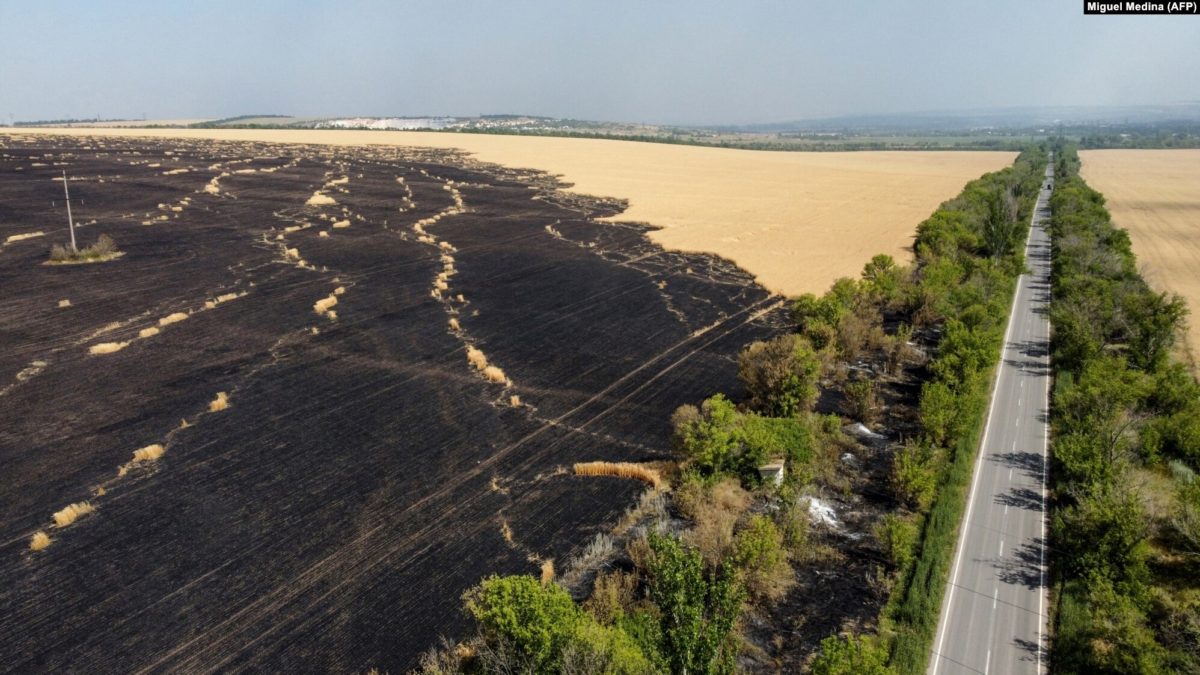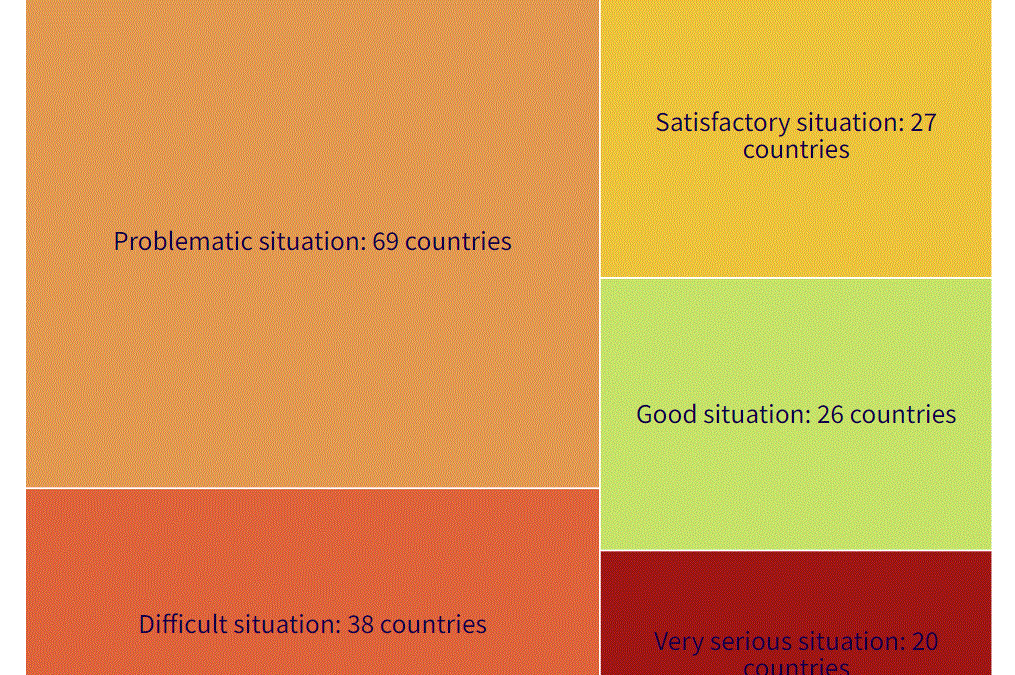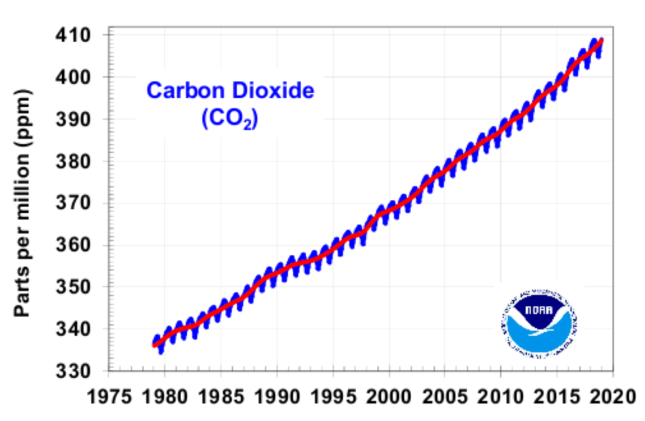Spain records hottest and driest April on record – “This is the worst period that we have had for the last 100 years”
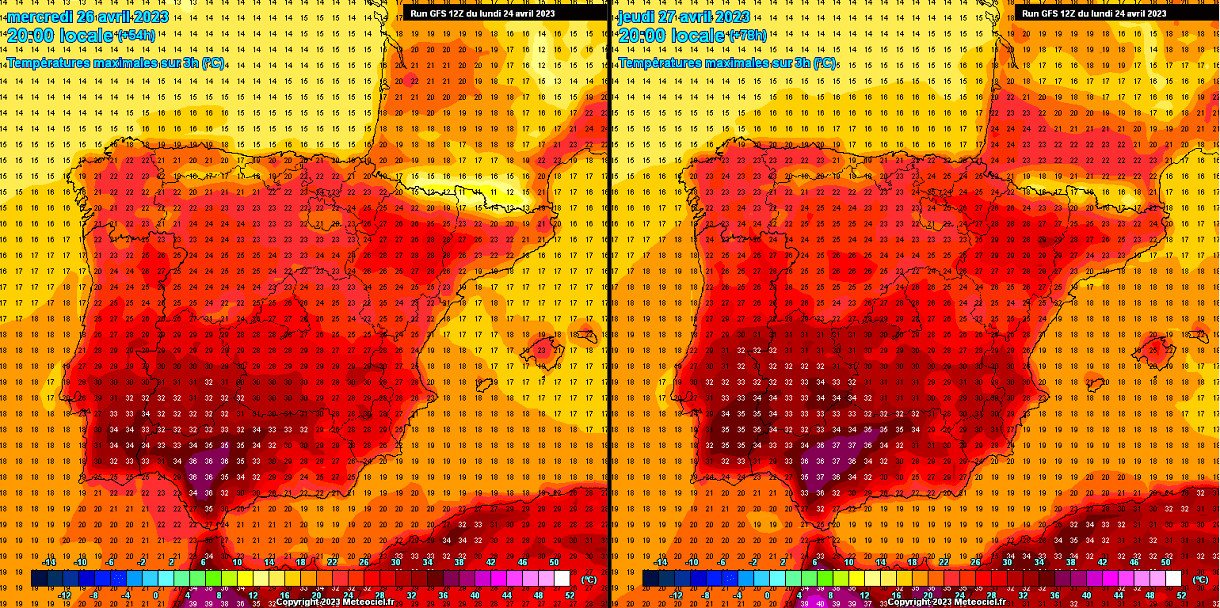
MADRID, 8 May 2023 (AP) – Drought-stricken Spain says last month was the hottest and driest April since records began in 1961.
The State Meteorological Agency, known by the Spanish acronym AEMET, said Monday the average daily temperature in April was 14.9 degrees Celsius (58.8 Fahrenheit), that is 3 degrees Celsius above the average.
AEMET said average maximum temperatures during the month were up by 4.7 Celsius.
Rainfall was a fifth of what would normally be expected in the month, making it the driest April on record in Spain.
Last year was Spain’s hottest since record-keeping started in 1961, and also the country’s sixth driest.
Three years of scant rainfall and high temperatures put the country officially into long-term drought earlier this year.
A flash study by a group of international scientists last week found that record-breaking April temperatures in Spain, Portugal, and northern Africa were made 100 times more likely by human-caused climate change and would have been almost impossible in the past.
The government has requested emergency funds from the European Union to support farmers and ranchers whose crops are being affected by the situation.
Spain records hottest and driest April on record
Disappearing lakes, dead crops and trucked-in water: Drought-stricken Spain is running dry
By Fred Pleitgen, Claudia Otto and Laura Paddison
2 May 2023
Catalonia, Spain (CNN) – Standing in his field of stunted, withered maize, Santi Caudevilla is very worried. “If the weather does not change it will be zero. Nothing is going to be harvested,” he said.
Caudevilla, who grows maize, sorghum and other crops in Gimenells in Catalonia, has been hit hard by the severe drought which has hammered this part of northeastern Spain.
Rainfall has been low for years. “We are in a desert. This is a desert today,” he said.
The lack of water is starting to feel like an existential crisis for farmers such as Caudevilla and he is worried about the future of his profession. It’s becoming increasingly hard to make ends meet as crops shrivel through lack of water – or cannot be planted at all.
Droughts are a fact of life in this corner of Spain. “They are typical of Catalonia’s Mediterranean climate,” said Albert Ruhi, a freshwater ecologist at the University of California, Berkeley, who is originally from Catalonia.
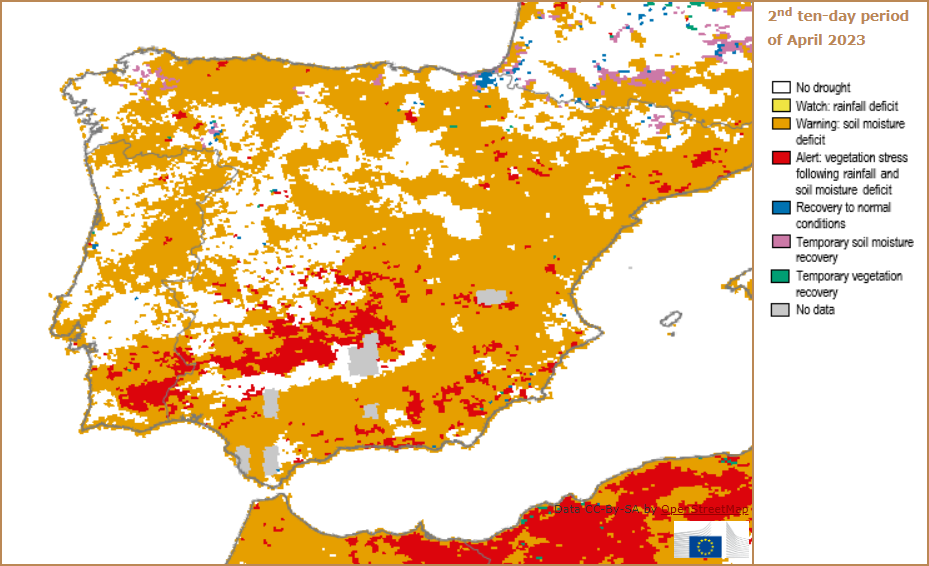
But a significant lack of rain and snow have made this one much, much drier, he told CNN.
“This is the worst period that we have had for the last 100 years,” Samuel Reyes, director of the Catalan Water Agency, told CNN.
The problem spreads beyond Catalonia.
Spain has been in a long-term drought since the end of 2022, said Ricardo Torrijo, a spokesperson for AEMET, the Spanish national weather service.
In March, the country only received 36% of the average monthly rainfall, making it the second driest March this century. The trend continued into April, which could end up being the driest on record, Torrijo told CNN.
Drought conditions have been exacerbated by searing temperatures that are more reminiscent of mid-July than spring.
Last Thursday, April records were smashed, with the city of Córdoba in southern Spain reaching 38.8 degrees Celsius (101.8 degrees Fahrenheit).
The combination of drought and heat have stoked fears for a repeat of last summer where the country saw blistering heat waves and wildfires that burned through 306,000 hectares (756,000 acres). Unusually early wildfires this spring have already burned more than 10,000 acres in the eastern region of Castellon.
These conditions point to a new reality for parts of Europe, which is warming twice as fast as the global average. While it will take time to pin down the exact role climate change is playing, scientists are clear that human-caused global heating is making droughts and heat waves more common and more extreme.
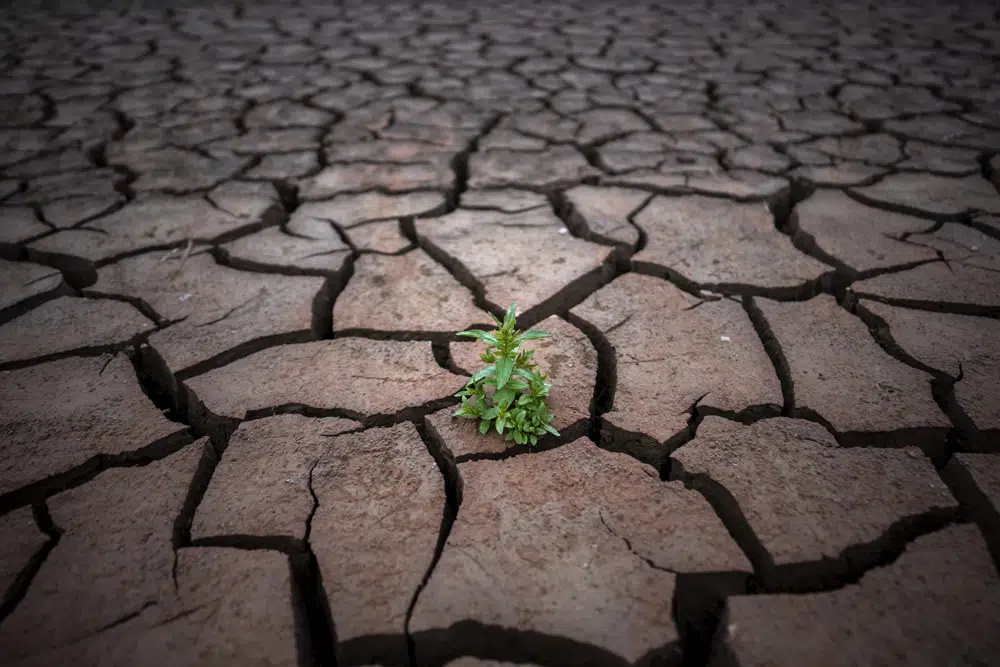
‘An agricultural disaster’
The cracked, desiccated earth at the Sau Reservoir reveals the heavy toll the lack of rainfall has taken on Catalonia’s water sources.
Located about 60 miles north of Barcelona, the reservoir is a key drinking water source for the region, but in late April it was only at 7% of capacity.
Its water levels are so low that a medieval village, flooded when the lake was created in the 1960s, has emerged, lending an eerie presence to the sun-baked lakebed.
Authorities have been forced to siphon out water from the reservoir in an attempt to protect water quality and have had to remove native fish to stop them asphyxiating.
Reservoir levels across Catalonia are hovering at around 25%, substantially lower than usual for this time of year.
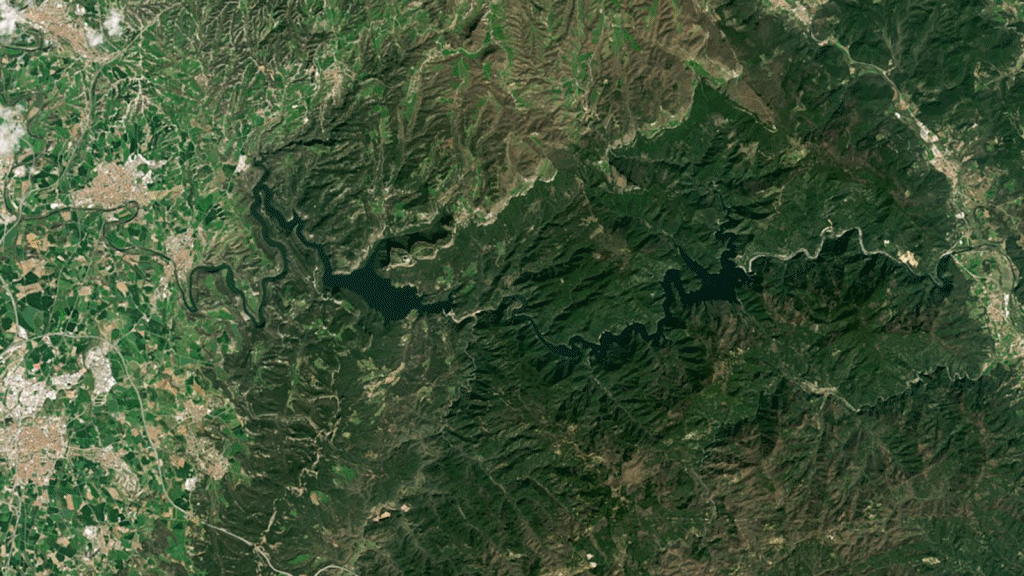
The lack of water is having a catastrophic impact on farms across the region. “There is no precedent,” said Martí Costal, head of water at the Young Farmers and Ranchers of Catalonia (JARC).
The majority of wheat and barley harvests on rainfed land will be lost, and on irrigated land will be cut by half, Costal told CNN. “If it does not rain in May it will be a disaster,” he said.
It’s a story which tracks across the country’s agricultural heartlands.
Drought affects 60% of Spain’s countryside, and has destroyed crops across 3.5 million hectares (8.6 million acres), according to the Coordinator of Farmers’ and Ranchers’ Organizations (COAG). That’s an area bigger than the state of Maryland.
Livestock farming is at risk as farmers need pasture to feed their animals. Without it, they are forced to buy food. Losses are also expected for orchards, vineyards, olive oil production and vegetable farming, Serge Zaka, an agrometeorologist, told CNN.
“These agro-climatic conditions are leading to an agricultural disaster,” he said.
Disappearing lakes, dead crops and trucked-in water: Drought-stricken Spain is running dry

